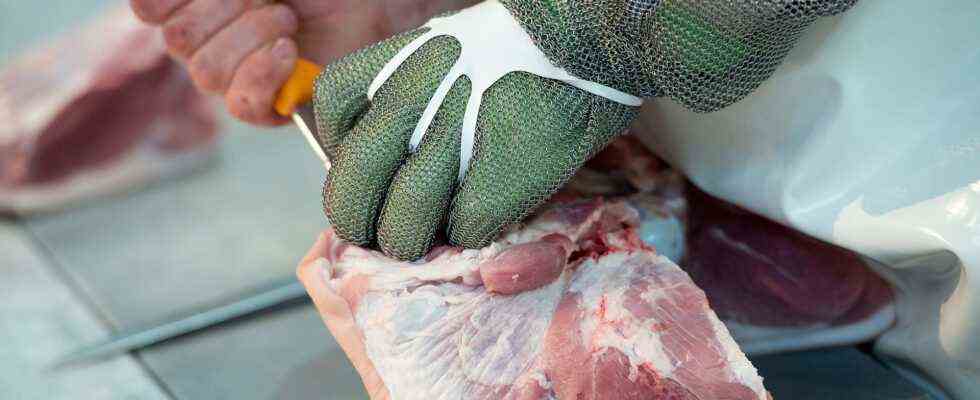Status: 11/22/2021 1:41 p.m.
Corona has exacerbated the shortage of skilled workers. The situation is particularly precarious in construction, but also in the butcher industry – where some companies are increasingly at a loss as to how to fill vacancies.
Master butcher Volkmar Woite from Brandenburg is in his business every day from morning to evening. The 61-year-old would like to “calm down a bit”. But that doesn’t work because he lacks staff – skilled workers that he urgently needs to cope with the great demand for his meat. He has been looking for sales assistants and trainees for years. But nobody applies. “Ten to 15 years ago we had at least ten applications. For about ten years: nothing at all.”
Bottleneck in more than half of the establishments
The butcher from Brandenburg is not alone in this situation. The current skilled workers report of the German Chamber of Commerce and Industry (DIHK) shows how serious the shortage is. According to this, more than half of the companies (51 percent) cannot fill at least some of the vacancies because they cannot find skilled workers. That is four percent more than before Corona.
“The shortage of skilled workers in the companies is back: faster and to a greater extent than many expected,” says the deputy DIHK managing director Achim Dercks. In the coming years it will be even more difficult to fight against the shortage of skilled workers. The prospects are bad for businesses like Woite butcher’s shop.
“Craft is no longer valued”
Woite even pays its employees above the collective bargaining agreement, there is no overtime, but Christmas and holiday pay – and yet the butcher doesn’t find any skilled workers. “Everyone just wants to study,” he says. The craft no longer counts.
This assessment is also confirmed by the DIHK’s specialist report. According to this, the number of apprenticeship contracts fell by eight percent in 2021. “It’s like that everywhere,” says master butcher Woite. He knows many craftsmen, from painters to fence builders: none of them can find skilled workers.
Increasing problem also in industry
The 2021 skilled workers report shows the largest gaps in the construction industry. 66 percent of the companies are looking for qualified personnel here. Demand among industrial companies has risen particularly sharply, currently at 53 percent. In autumn 2020 it was 29 percent.
A large majority of companies (85 percent) expect negative effects due to the shortage of skilled workers. Almost half of the companies (43 percent) even expect to have to reject orders or reduce their offers.
Less skilled workers, less growth
“Bottlenecks in individual areas can affect large parts of the economy,” warns DIHK Managing Director Dercks. “If there is a lack of IT experts, for example, this also affects medium-sized companies that are digitizing business processes or want to improve cybersecurity. If there are no truck drivers, industrial production processes can come to a standstill.” All of this has an impact on the value chain.
“Overall, the number of vacancies currently unoccupied is more likely 1.7 to 1.8 million,” said Dercks. That slows the added value roughly by 90 billion euros. “The shortage of skilled workers is proving to be an enormous brake on growth.”
The shortage of skilled workers is driving some companies out – they have to give up. At some point, son and daughter-in-law will take over the business of butcher Woite from Brandenburg. “It’s like winning the lottery,” says Woite. But when the 61-year-old can finally step back depends on whether there will be applicants for the vacancies again at some point. Until then, Woite will continue to operate six days a week.

